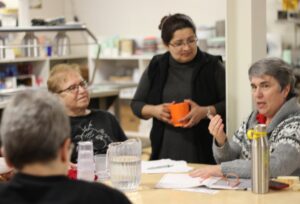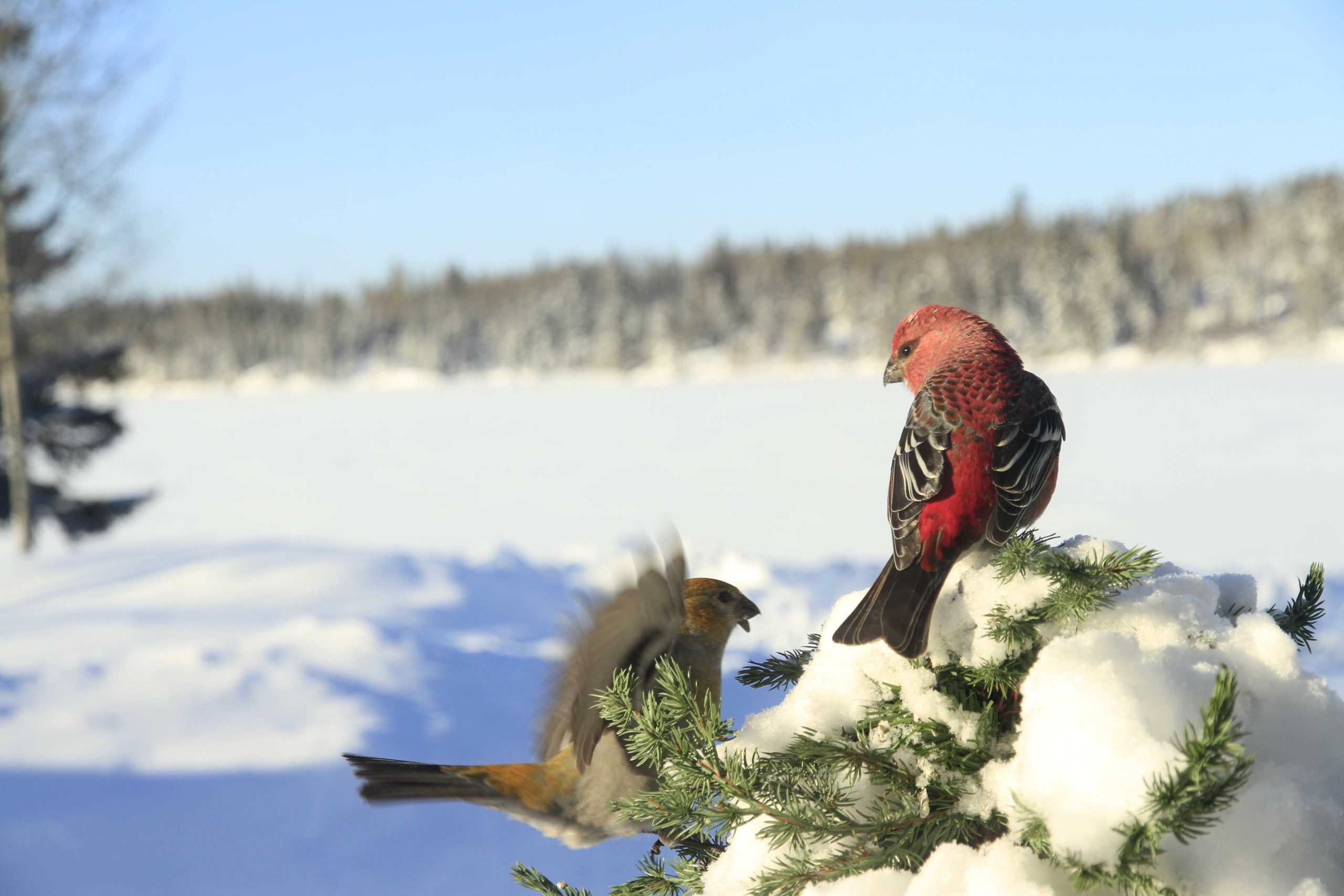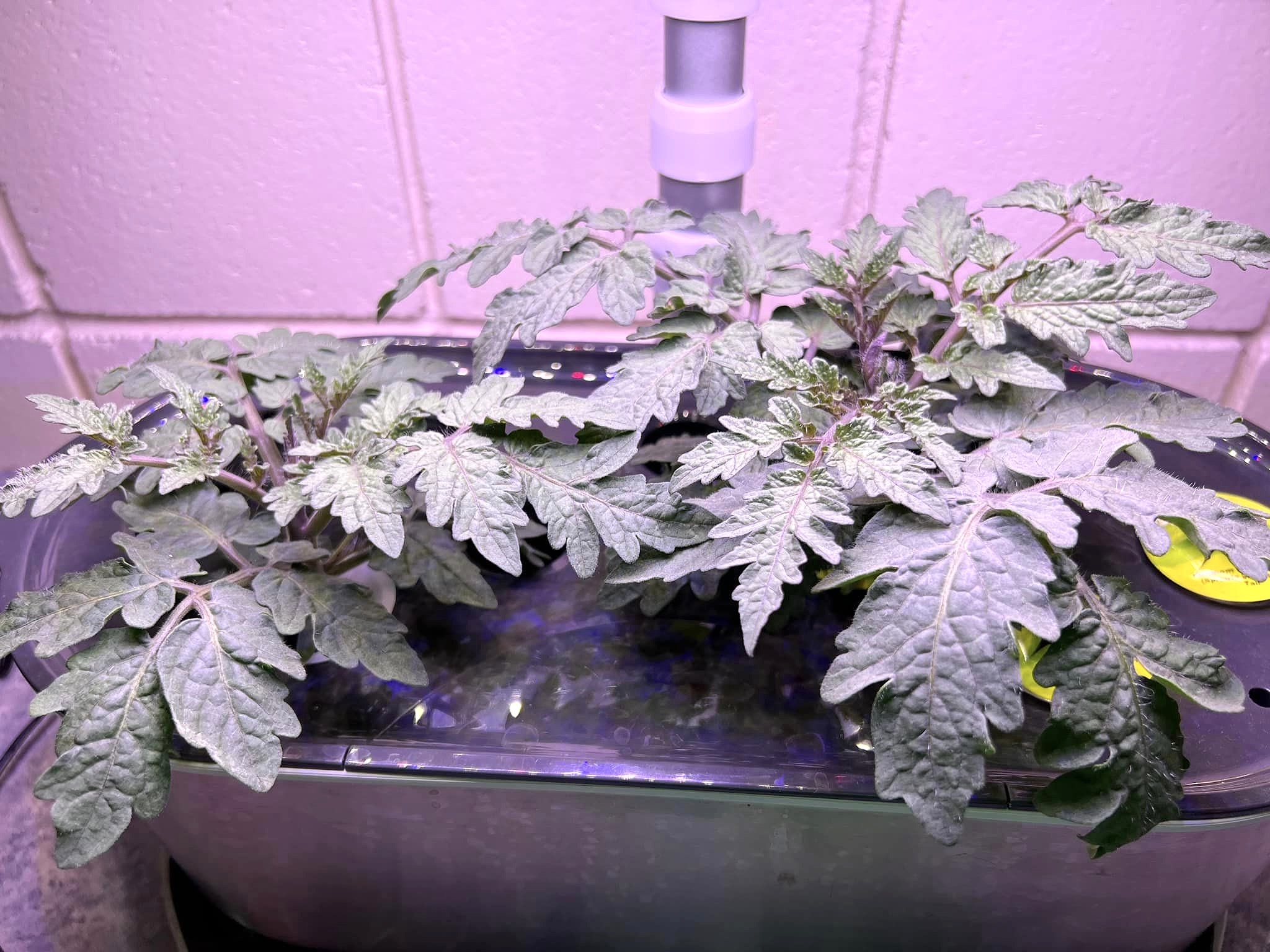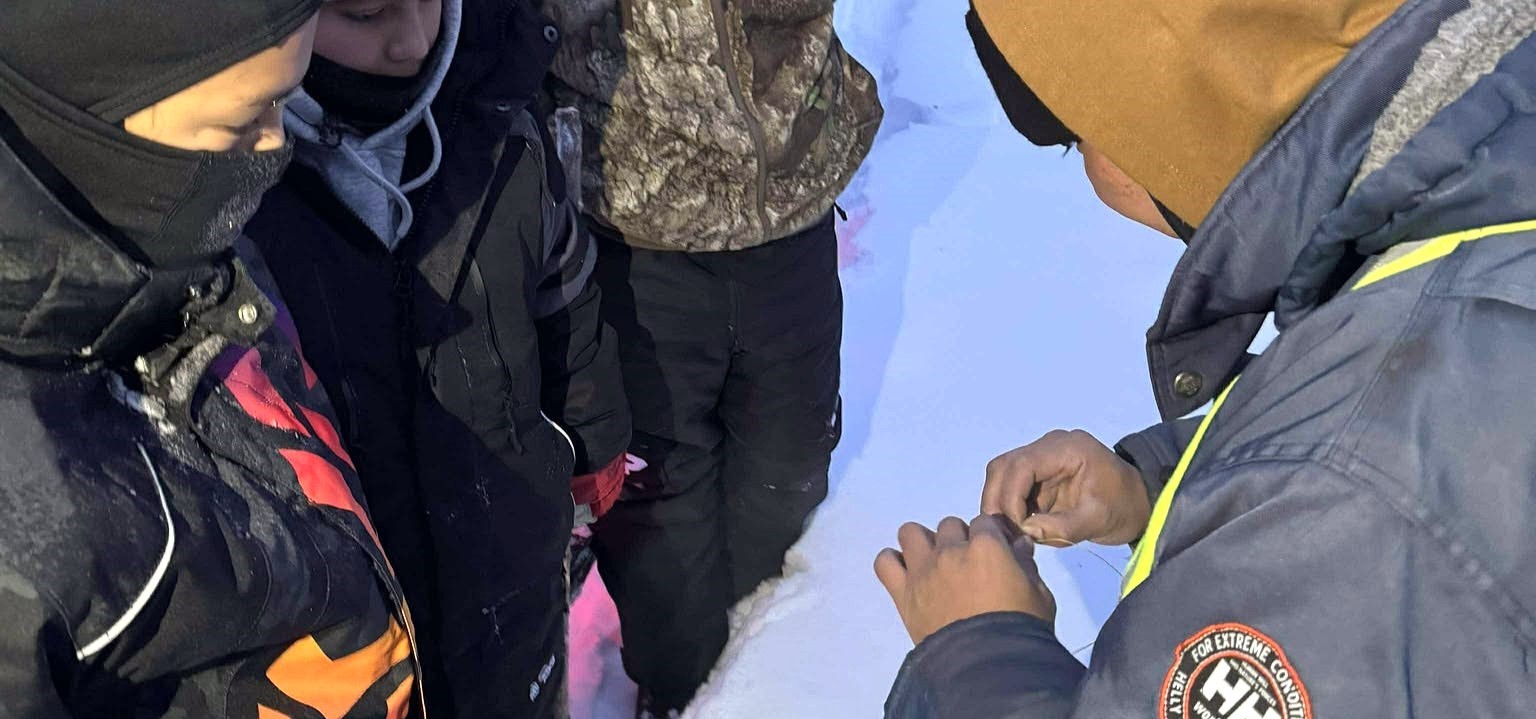– by Kristen Lowitt and Olivia Boyce
The Brandon Food Council recently hosted its first of a planned series of community forums. Oriented around the theme of ‘building a food secure community’, the event generated significant enthusiasm and a range of innovative ideas for strengthening the local food system. The rich insights gathered at this and other future events the Council is planning will contribute to an integrated food strategy for the City that the Council is tasked with developing over the next several years.
Attended by approximately 50 community members, the event opened with a land acknowledgement and smudge led by Grace Masse, the newest member of the Brandon Food Council. This was followed by short presentations from local food security leaders, including Jan Chaboyer, Brandon City Councillor, Lisa Ramsey, Elspeth Reid Family Resource Centre, and Hope Roberts, 7th Street Health Access Centre.
Chaboyer spoke about the significant work by the City Poverty Committee that led to the endorsement of the Brandon Food Charter in 2014. Ramsey shared some of the challenges that local families face in putting enough food on the table, including mothers who eat less to ensure their children do not go without. Roberts provided insights into the services offered by 7th Street Access and how they manage with limited resources to serve as many people as possible.
Following the presentations, participants broke into small groups to brainstorm their vision for a food secure city by 2030. A range of ideas emerged spanning a continuum from addressing immediate food security needs through to long term planning and policy development. In the area of charitable food provisioning, a key discussion point was the need for an accessible and updated list of available services and more collaboration across agencies to ensure emergency food supports are in place on statutory holidays and Sundays.
Considerable discussion of the sustainability of the City food system also took place, focusing on how to grow more food and minimize waste. Participants expressed a need to better understand City bylaws as they pertain to local food production (such as front yard vegetable gardens or back yard chickens) and to potentially adapt bylaws to be more friendly for growing food, such as allowing fruit trees to be planted in public spaces. In the context of food production, promoting access to land for young growers and farmers as well as forging stronger links with rural producers, especially those engaged in organic and ecological practices, were also raised as priorities.
The event clearly demonstrated that there are many opportunities for collaboration to make more effective use of the food programs already available in Brandon, to remove policy and legislative barriers to local food production, and to advocate for income boosting measures to reduce poverty and support ways of accessing food in a dignified way.
Over the coming months, the Brandon Food Council will be forming sub-committees to take on priority projects and actions in collaboration with community partners. At the same time, the Council continues to work on long-term policy development
The Brandon Food Council encourages citizens to reach out and let them know what your vision is for a food secure Brandon and how you think the Brandon Food Council may support you in your food security initiatives.
February, 2020








